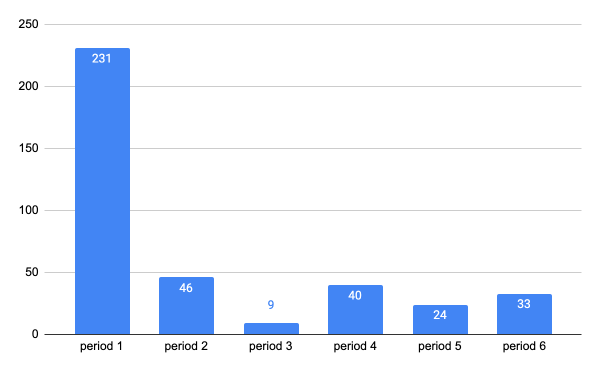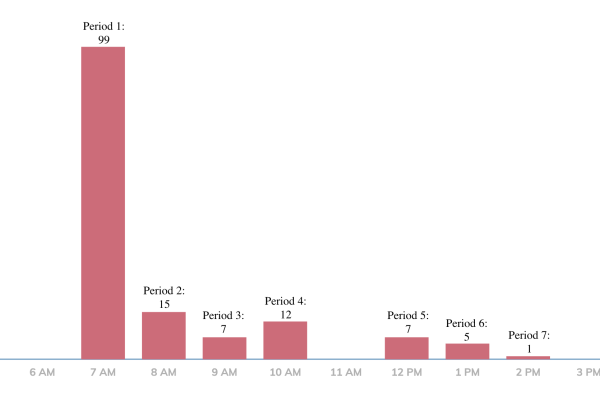Minga is back, and so are we! As the school year begins, Sultana will be keeping track of students through Minga, a hall pass app introduced last year.
If a student acquires seven or more tardies, the student will face consequences. If a student gets seven tardies, they will be called to speak with an administrator in Student Support. Student Support will be making an effort to work with students on punctuality. “…administrative discretion allows us to best address the needs of each individual student,” said Erika Gray, Vice Principal of Student Support.
When a student stacks up ten tardies, they will be prohibited from entering ticketed events such as dances, sporting events, etc. Student athletes may not be allowed to participate in games or even practices.
Students can attend after-school detention for fifteen minutes to remove one tardy at a time.
Gray added, “After-school detention is on a trial basis and we plan to expand our options for students to re-earn access to ticketed events.”
Why The New Policy:
Last year, student tardies were incredibly high. Gray shared statistics from a Thursday in August last school year (blue graph).

This year’s statistics show a significant decrease (red graph).

The goal is to encourage students to make it to class and minimize tardiness. According to Sultana administration, the approach seems to be succeeding and Sultana will continue to use this policy.
While this policy has been successful so far, some students are not fans.
Cheyanne Almonza, a junior at Sultana, expressed, “I don’t like it. There’s not enough time to get to class. Especially, if I go from the W’s to the C’s, or if I have to get something from the office.”
Rihanna Bracey, also a junior, agrees, “It was only added because of freshman year, in my opinion. Also, people who have P.E. and are tired after it, have to walk quickly [after changing] and their class might be in the A’s. One misstep and you’re late.”
Other reasons students disagreed with it is due to traffic in the morning and student traffic in the halls. Some students feel as though they are being punished for things they can not control. Some argue that there should be more grace for the students who just made a one-time error or those with good grades who do their work despite being late.
Others think this policy is really helping and teaching students how to make it on time, forcing them to learn how to make it work in their schedules. Some students feel this will teach them discipline for when they are in the workforce, as well as punish disruptive students.
Regardless of opinions, the policy statistically, seems to be working very successfully. Encouraging students to get on time and get on the right track.






